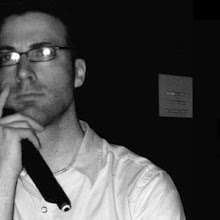Ten years later, what's 'The Score'?
While listening to Wyclef Jean's contribution to Shakira's "Hips Don't Lie" the other day, I started to wonder: Which Fugee career curve would I rather live out?
The most versatile Fugee, Lauryn Hill was equally impressive as a singer and rapper and made the Fugees accessible as a mainstream act. She won a ton of Grammys, including Album of the Year in 1999, so she peaked higher than Wyclef or Pras did at any given point in their careers. And her album, "The Miseducation of Lauryn Hill" is one of the best of that decade, with clever, solid hits like "Doo Wop (That Thing)," "Everything is Everything," "Ex-Factor," and the remake of "Can't Take My Eyes Off You" captivating listeners. But what has the "Sister Act 2" alumna done since? She alienated the vast majority her fans with an unlistenable second album (ouch), appeared in "Dave Chappelle's Block Party" with the reunited Fugees (yay), and reunited with the Brothers Fooj for a song whose airplay appeared to be limited to a Verizon commercial with a dancing bowler (double ouch).
Wyclef has never had a defining, polarizing moment like Hill did when she won the Best Album Grammy, but he's won a few of those trophies, too. Blessed with creative lyrics and solid guitar skills, 'Clef has vocals that aren't nearly as fluid or soothing as Hill's -- they might be the polar opposite. But the passion in his voice on tracks like "911" and "President" mirrors the imperfect intensity of Kurt Cobain whenever his voice cracked on "Unplugged in New York." Wyclef's never stopped working or thriving since the Fugees broke up, collaborating on songs with almost every legitimate living Hip Hop, R&B and Rap icon in the industry and beyond -- including Whitney Houston, Destiny's Child and The Black Eyed Peas -- as well as icons from other genres, including Santana, Sublime, Kenny Rogers and Sinéad O'Connor. Perhaps he can be forgiven for rapping with The Rock on "It Doesn't Matter," which can still be considered an amusing novelty record. Wyclef is more affable and accessible than Hill, whose politics have been more in the news in the last seven years than her music. Wyclef continues to have mainstream success, with probably Pepsi and Verizon commercials representing the only real threats to his street cred.
After the Fugees broke up in 1997, Pras' career achievement was 1998's admittedly awesome "Ghetto Supastar (That Is What You Are)," featuring Mya's breakthrough vocals and perhaps ODB's most memorable lyrics other than "Got Your Money." Since then, he's basically been the Ringo Starr of the group, except without comparable name recognition. His Wikipedia bio is about as long as this paragraph and references his sole acting credit from the 1999 flop "Mystery Men." He recovered somewhat last year with "Haven't Found," which got some airplay with a track that used a loop of U2's "Still Haven't Found What I'm Looking For." But that's about it.
I think a lot of people would argue that they'd rather take Hill's career because her peak was higher than the others', but I think Wyclef will be working and succeeding on nearly as high a level for a far longer period of time. So I pick Wyclef for all the aforementioned reasons. Hooray!



0 comments:
Post a Comment